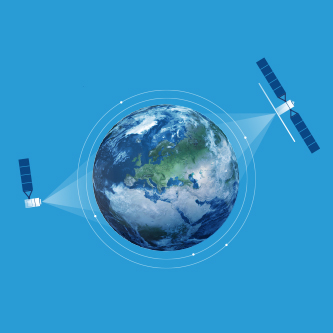New knowledge centre to apply insights from space to EU policy-making

The Knowledge Centre aims to maximise the use of Earth observation data – in particular from the EU's Copernicus programme – in EU policy-making. The objective is to offer services and the knowledge needed for the efficient implementation of the European priorities, among which the Disaster Risk Management, the European Green Deal and the Digital transition.
The Knowledge Centre team will systematically monitor the policy needs and priorities for Copernicus products and services and aims to transform best practice and state-of-the-art science into policy-tailored services. One of the objectives is also to ensure that the evolution of the Copernicus programme and other Earth observation and research investments of the Commission remain responsive to EU policy.
The JRC coordinates a range of knowledge and competence centres, making available science-based evidence and a variety of tools and services to inform policy-makers in all EU policy areas. Knowledge Centres bring together experts, researchers and policy-makers within and outside the Commission to holistically frame policy questions and develop evidence-based answers. The oldest Knowledge Centre, launched in 2015, is the Disaster Risk Management Knowledge Centre (DRMKC), managed by the JRC and recently mandated by the Commission and the Member/Participating States to become the core of, and to lead, the Science Pillar of the Union Civil Protection Knowledge Network.
The newly established KCEO and the DRMKC are complementary to each other in addressing the knowledge needs of the large DRM community. The first one will seek needs of the community in observation capacity; the second tackles the challenges of fragmented knowledge and fragmented networks, providing a networked approach to the science-policy interface in DRM, across the Commission, EU Member States and the DRM community within and beyond the EU. The two Knowledge Centres are working in close collaboration, cross-briefing each other and making sure the best possible knowledge and expertise is made available for DRM activities at all levels.
